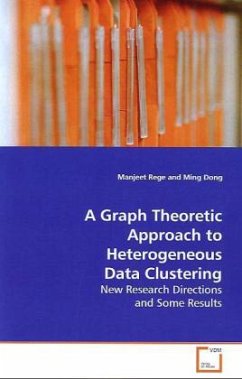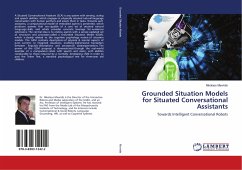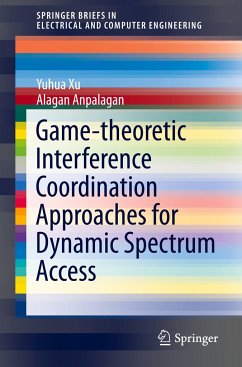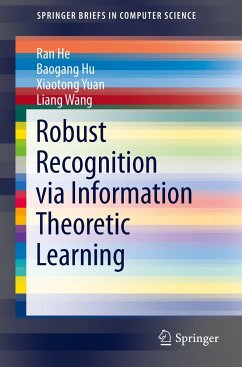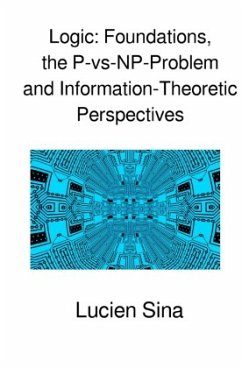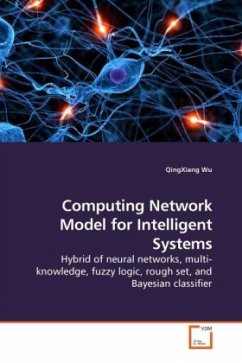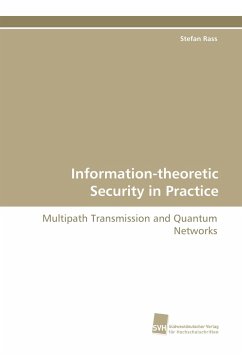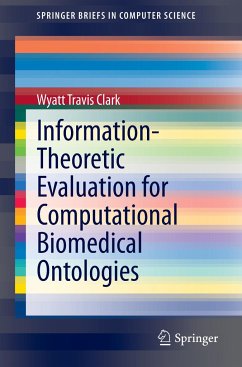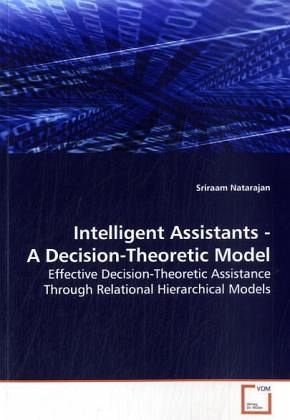
Intelligent Assistants - A Decision-Theoretic Model
Effective Decision-Theoretic Assistance Through Relational Hierarchical Models
Versandkostenfrei!
Versandfertig in 6-10 Tagen
45,99 €
inkl. MwSt.

PAYBACK Punkte
23 °P sammeln!
Building intelligent computer assistants has been a long-cherished goal ofAI. Many intelligent assistant systems were built and fine-tuned to specificapplication domains. In this work,we develop a general model of assistance that combinesthree powerful ideas: decision theory, hierarchical task models andprobabilistic relational languages. We use the principles of decision theoryto model the general problem of intelligent assistance. We use acombination of hierarchical task models and probabilistic relationallanguages to specify prior knowledge of the computer assistant. Theassistant exploits i...
Building intelligent computer assistants has been a
long-cherished goal of
AI. Many intelligent assistant systems were built
and fine-tuned to specific
application domains. In this work,
we develop a general model of assistance that
combines
three powerful ideas: decision theory, hierarchical
task models and
probabilistic relational languages. We use the
principles of decision theory
to model the general problem of intelligent
assistance. We use a
combination of hierarchical task models and
probabilistic relational
languages to specify prior knowledge of the computer
assistant. The
assistant exploits its prior knowledge to infer the
user's
goals and takes actions to assist the user. We
evaluate the decision
theoretic assistance model in three different
domains including a real-world domain
to demonstrate its generality. We show through
experiments that both the
hierarchical structure of the goals and the
parameter sharing facilitated by
relational models significantly improve the learning
speed of the agent.
Finally, we present
the results of deploying our relational hierarchical
model in a real-world
activity recognition task.
long-cherished goal of
AI. Many intelligent assistant systems were built
and fine-tuned to specific
application domains. In this work,
we develop a general model of assistance that
combines
three powerful ideas: decision theory, hierarchical
task models and
probabilistic relational languages. We use the
principles of decision theory
to model the general problem of intelligent
assistance. We use a
combination of hierarchical task models and
probabilistic relational
languages to specify prior knowledge of the computer
assistant. The
assistant exploits its prior knowledge to infer the
user's
goals and takes actions to assist the user. We
evaluate the decision
theoretic assistance model in three different
domains including a real-world domain
to demonstrate its generality. We show through
experiments that both the
hierarchical structure of the goals and the
parameter sharing facilitated by
relational models significantly improve the learning
speed of the agent.
Finally, we present
the results of deploying our relational hierarchical
model in a real-world
activity recognition task.



